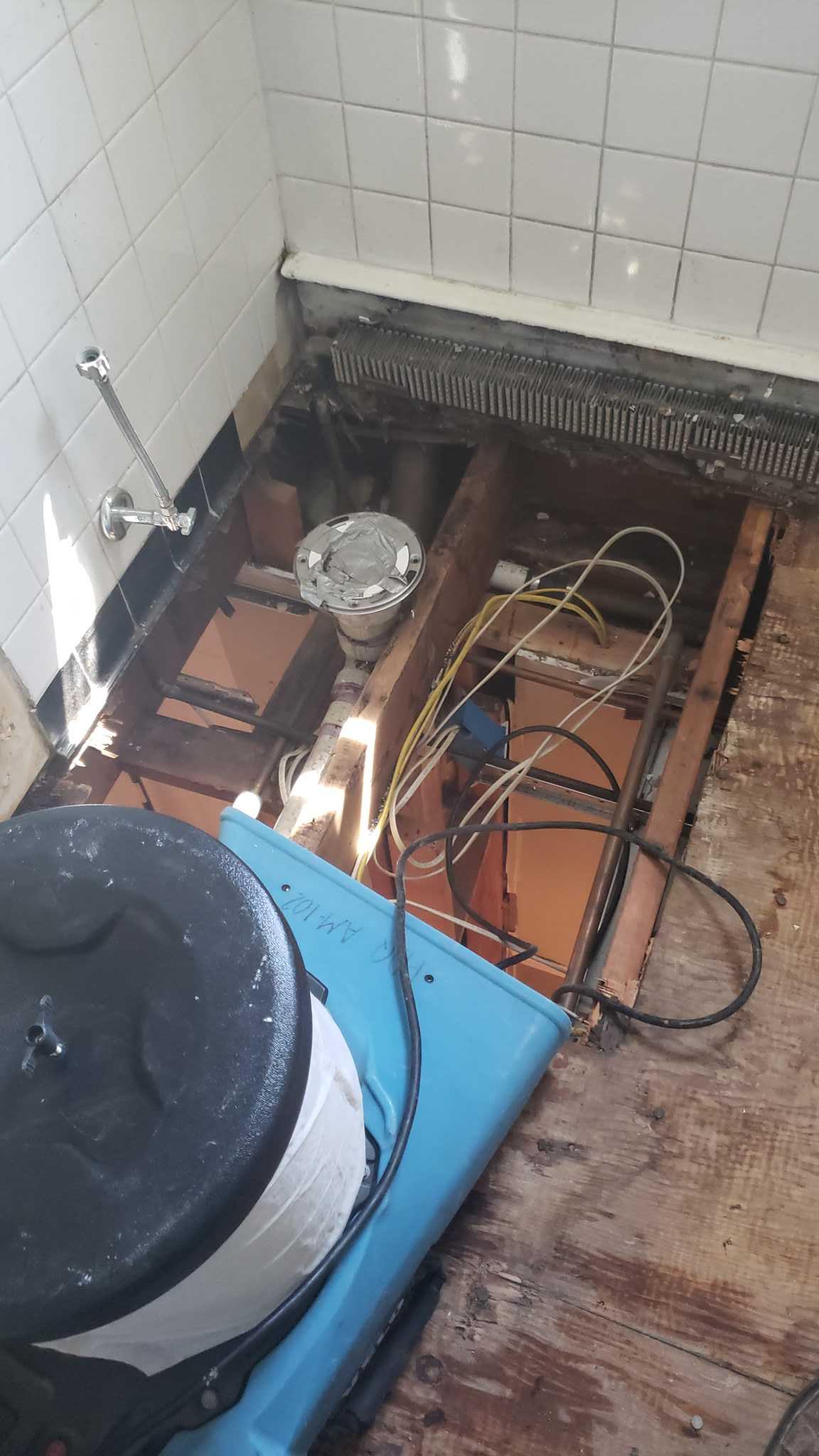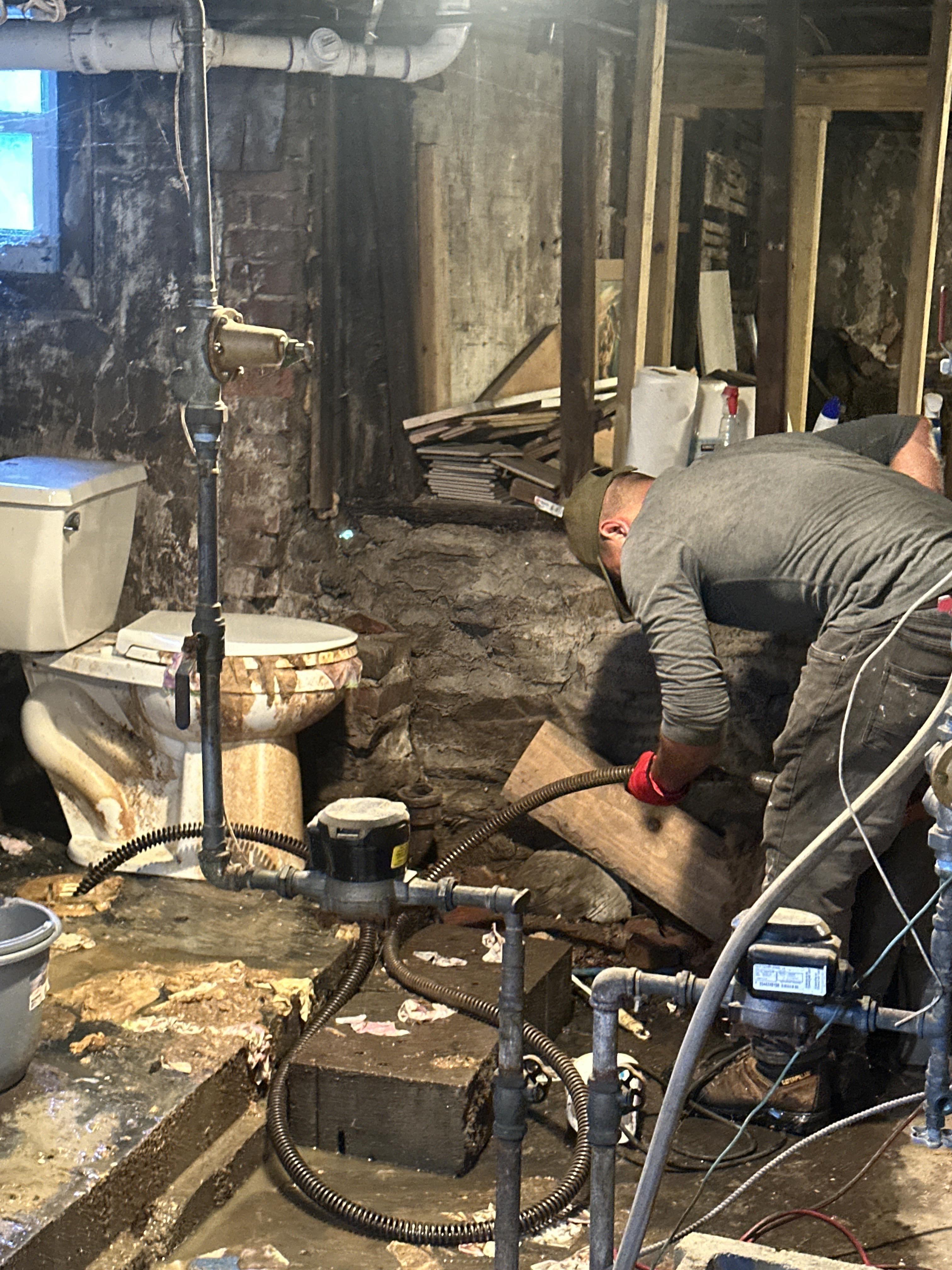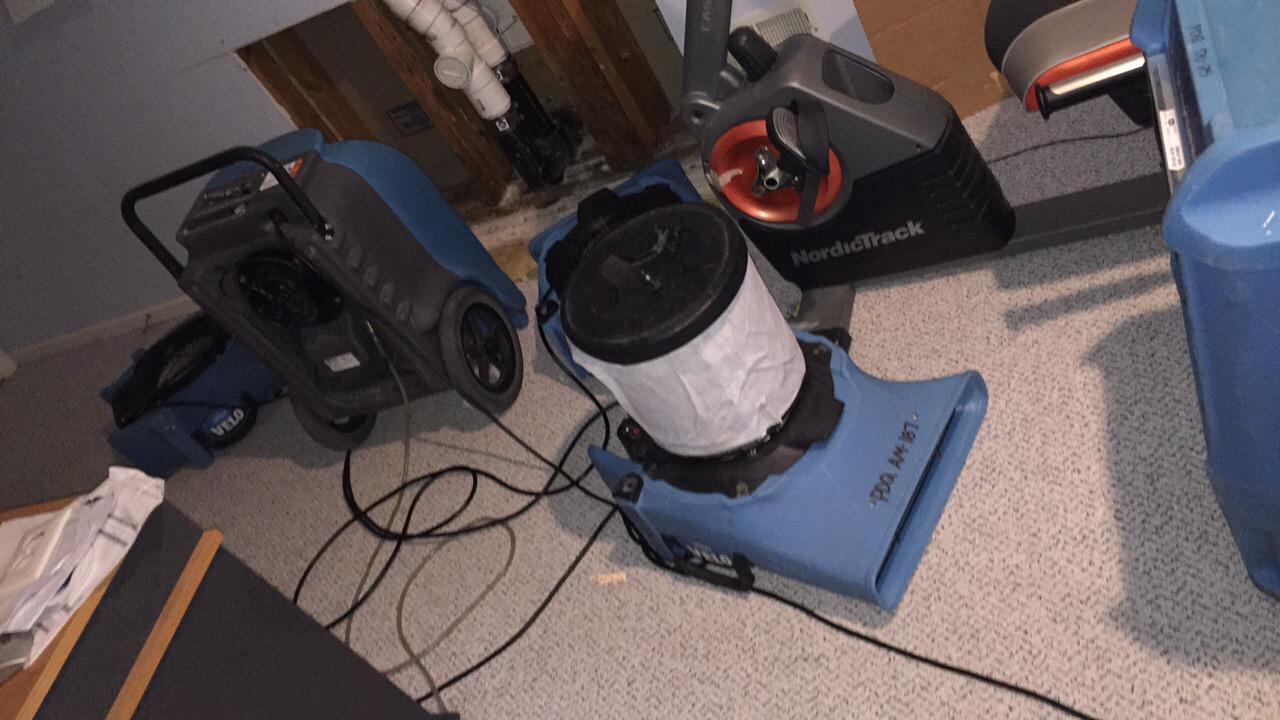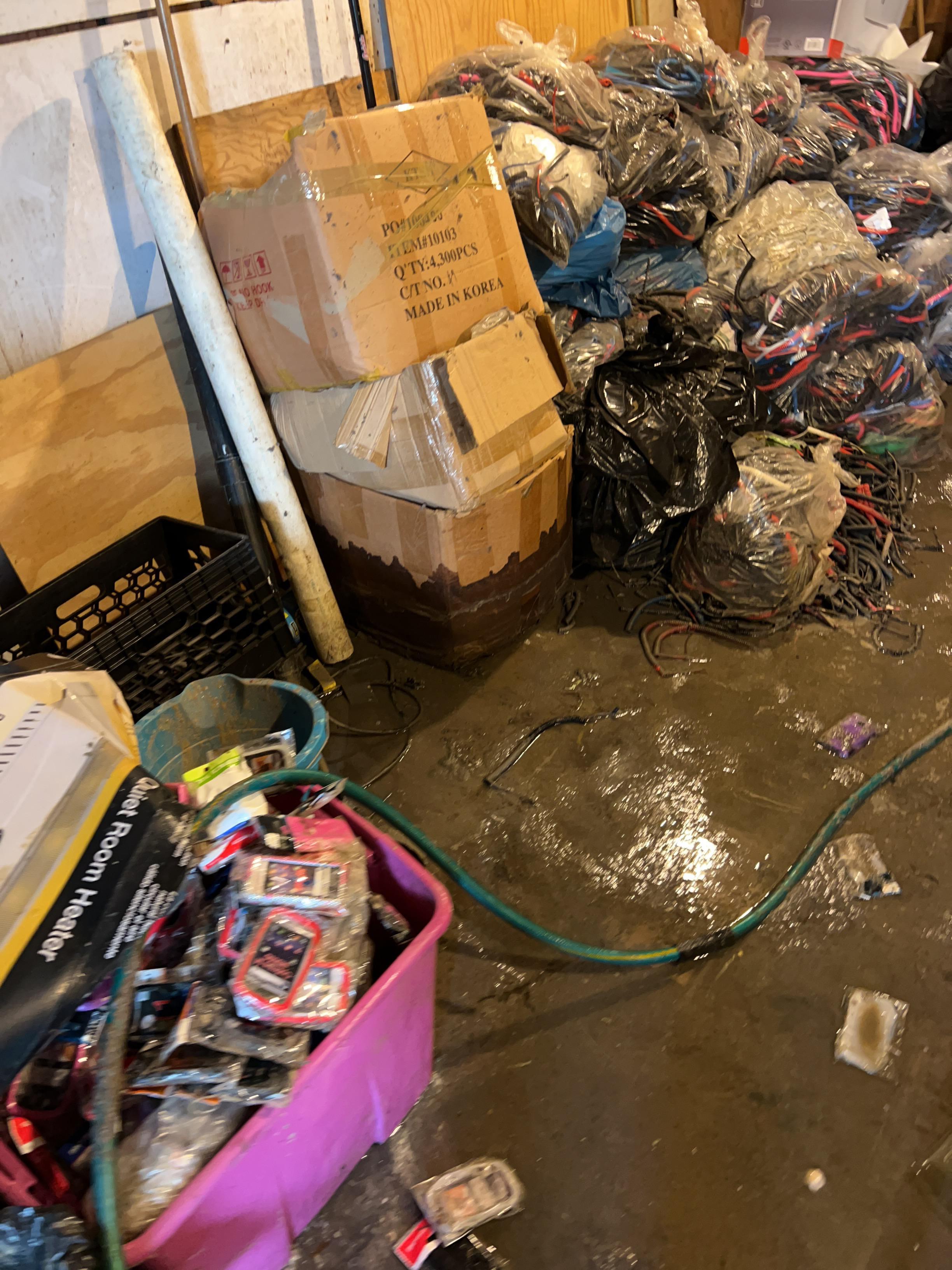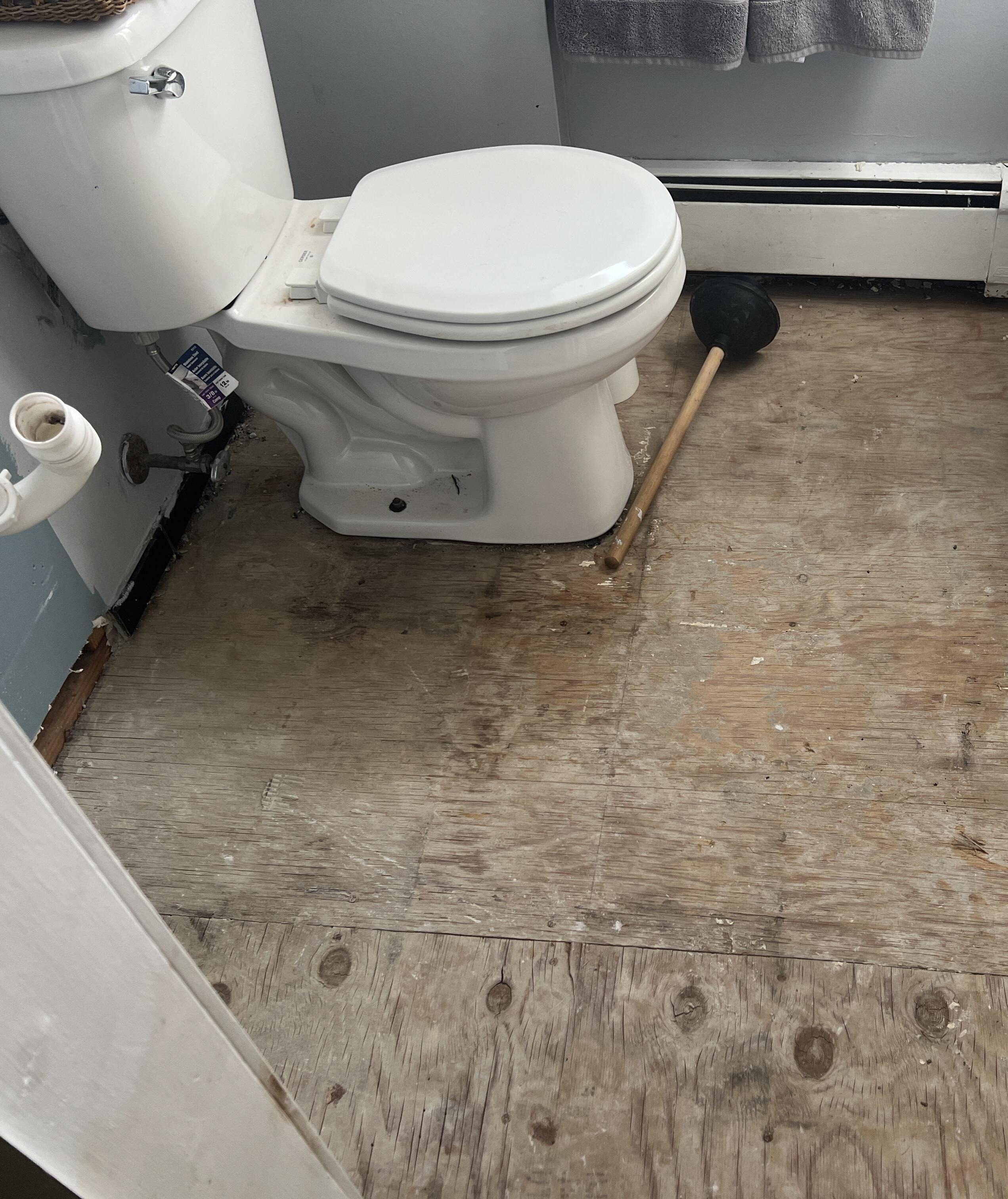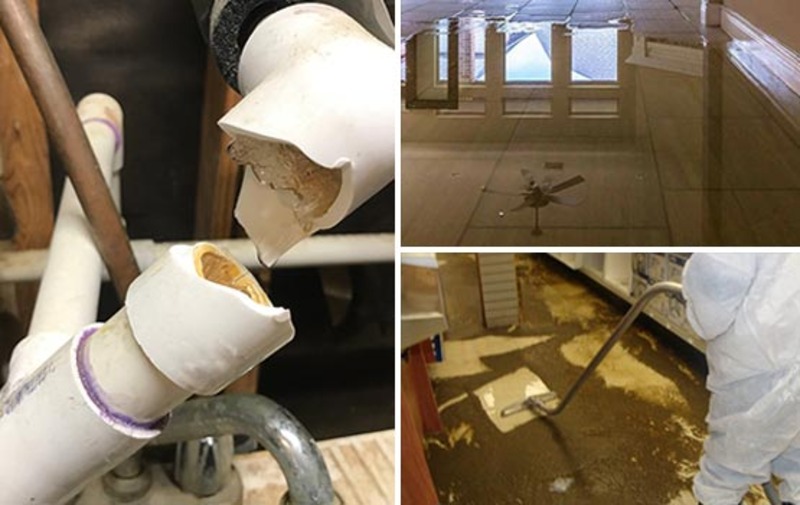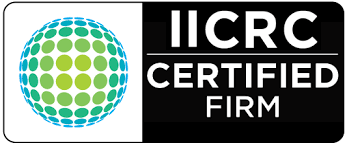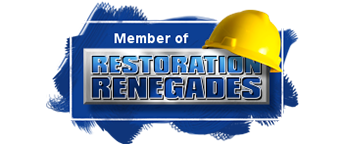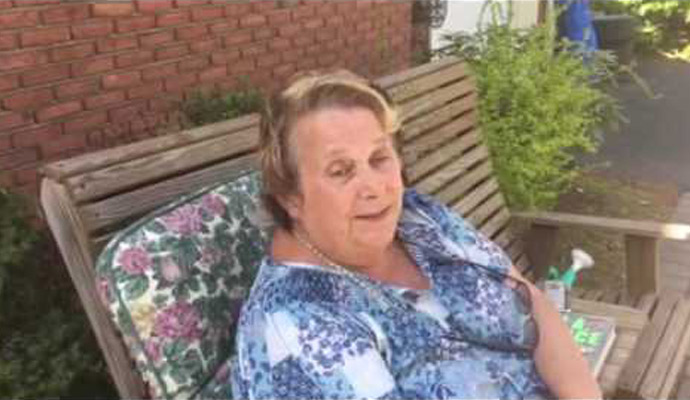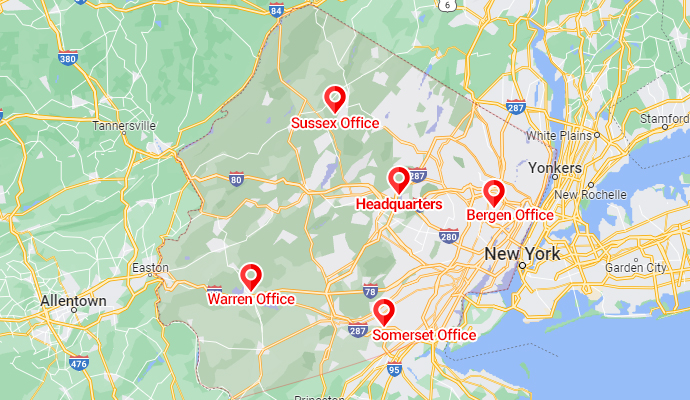How to Cleanup Sewage
- How to Clean up Sewage
- Understand the electricity risks
- Safety first!
- Contain the sewage to the affected area
- Identify what caused it and document
- Remove contents
- Remove the sludge
- Remove affected building materials
- Extract any standing water
- Scrub and Rise the Affected Area
- Sanitize All Surfaces
- Drying Process
- Clean yourself up
- How to Get Sewage Smell out of House
- No Smell Guarantee
- What do I do with my ruined contents if putting in an insurance claim?
- What causes a sewer back up?
- What are potential signs of a sewer back up in your basement?
- Sewer Back Up Prevention Tips
- Glossary
What to do after your basement Sewer backs up
All wastewater contains fecal coliforms. These bacteria are present in the intestines of all warm-blooded animals, including humans. Although they are important in digestion, they are indicators that pathogens may be present. Pathogens like Giardia, Cryptosporidia, Salmonella, Shigella, Vibrio cholerae, etc., will be present only if those using the wastewater treatment system are infected.
The following categories of people are high-risks groups:
- Elderly people
- Young children
- Pregnant women
- People undergoing chemotherapy
- People who have recently undergone surgery
- Immunocompromised
- Anyone with respiratory issues, such as asthma
Exposure to wastewater may result in a number of illnesses, some of which include:
- Gastroenteritis (cramping stomach pains, diarrhea, and vomiting), the main symptoms watery diarrhea, stomach pain, cramping, fever, nausea, and a headache and vomiting.
- Leptospirosis signs of leptospirosis usually show within 2 weeks. When the disease does hit, it hits fast. You’ll get a high fever. Typical symptoms are headache, muscle ache, jaundice (yellowing of the skin and eyes), vomiting, diarrhea, skin rash. It is important to get tested to verify you have it.
- Legionellosis disease is a severe form of pneumonia — lung inflammation usually caused by infection. It's caused by a bacterium known as legionella. Legionnaires' disease usually develops two to 10 days after exposure to legionella bacteria. Common symptoms are headache, muscle aches, high fever, cough, shortness of breath, chest pain, gastrointestinal symptoms, such as nausea, vomiting and diarrhea, confusion or other mental changes.
How to Clean up Sewage
- Understand the Electricity Risks
- Make sure there are no utility lines being affected by the sewage. If you are not sure and concerned, call you electrician.
- Once you have verified you will not have any safety concerns with your electricity proceed with the following steps.
- Safety First!!
- Wear PPE (Personal Protective Equipment) such as waterproof Tyvek suits, nitrile gloves, googles, respirator, rubber boots. This is Cat 3 water and is contaminated.
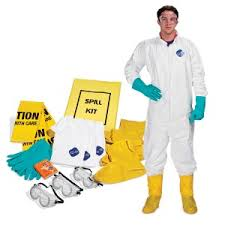
- Wear PPE (Personal Protective Equipment) such as waterproof Tyvek suits, nitrile gloves, googles, respirator, rubber boots. This is Cat 3 water and is contaminated.
- Contain the Sewage to the Affected Area
- Seal off air ducts to minimize the spread of airborne contaminants. Close and seal off doors to the unaffected areas. Place protective floor coverings on unaffected areas you will need to walk through, so as to minimize the tracking of sewage and water though the property.
- Identify the Cause and Document It
- Identify what caused the sewage backup. Very commonly it maybe a soft clog near your clean out, such as a wad of toilet paper. Call a professional to help with the clog or repair. Take pictures of the clog if you are considering putting in an insurance claim and save their bill.
- Remove Contents
- Move out all your contents so that you can then work on the structure. Take the “unaffected contents” and move to a different room, move the affected nonporous contents to another area so they can be cleaned and deodorized.
- PRO Tip: Bag the affected contents in your garage so you can photograph each item, if you are putting in an insurance claim. Do NOT throw them out yet, your adjuster may want to inspect. Wait for approval before you discard them. Get this in writing.
- Move out all your contents so that you can then work on the structure. Take the “unaffected contents” and move to a different room, move the affected nonporous contents to another area so they can be cleaned and deodorized.
- Remove the Sludge
- Use a shovel and scrape as much as you can off the floor and double bag and tie/seal them off. Do not make them too heavy so they may rip open. Any surface that was in contact with the sewage must be sanitized. Sewage backups often leave behind sludge and debris that should never be cleared by hand. Instead, use a shovel to get it off the floor and into heavy-duty plastic bags.
- Remove Affected Building Materials
- Remove affected flooring such as carpet, pad tack strip, vinyl floors, wood floors and sometimes tile floors if the sewage soaked into the grout lines.
- Any paneling, drywall, plaster, insulation will need to be removed if affected.
- PRO Tip: Save a 1’ x 1’ piece of any of your floor such as carpet, pad, laminate floor, wood floor, or tile… your adjuster may need to send out for replacement pricing evaluation.
- Extract Any Standing Water
- Remove dirty water, this may take 2 or 3 passes. Make sure a grounded outlet is being used. The contaminated water should only be dumped into a toilet.
- Scrub and Rise the Affected Area
- Use a low-sudsing detergent and an odor inhibitor mixture and scrub down all surfaces affected by sewage backup. Basement floors, walls and steps need to be washed with hot water and rinsed with clear, hot water. You might need to do this a few times. Extract the remaining water from the floor. Make sure to get under the sill plates.
- Sanitize All Surfaces
- After all areas have been thoroughly cleaned of sewage, you will want to apply a disinfectant and an antimicrobial to those areas. Make sure to get under the sill plates.
- Drying Process
- Once all the demolition, cleaning and sanitizing are done, you will want to set up your drying equipment. The proper number of dehumidifiers, air scrubbers and air movers will need to be set up for the drying to take place. Depending on the building materials and how long they were wet, it may take several days or longer to completely dry out the property.
- Clean Yourself Up
- It is recommended to throw out the clothes your wore and cleaning rags so that you don’t cross contaminate your laundry with sewage. Wash your hands thoroughly and take a hot shower with an antimicrobial soap.
How to Get Sewage Smell out of House
- 4 Principles of Odor Control
- Remove the source
- Clean the source area
- Increase the temperature
- Penetration
- Cleaning
- What are pairing agents?
- This is a fancy way to say deodorizer. A deodorizer actually will change the molecular structure of the odor and neutralize it. Different deodorizers will be needed for each type of emergency. Masking an odor will only temporarily hide the odor, it will come back. Odor will be more prevalent when it is warmer and more humid.
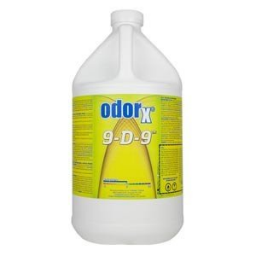
- This is a fancy way to say deodorizer. A deodorizer actually will change the molecular structure of the odor and neutralize it. Different deodorizers will be needed for each type of emergency. Masking an odor will only temporarily hide the odor, it will come back. Odor will be more prevalent when it is warmer and more humid.
- Hydroxyl Generator
- Hydroxyls are made by air passing over a 3 optic ultra violet light. These molecules will attach to odor molecules and neutralize the odor. Hydroxyls will also sanitize the air. Cruise ships and hospitals use these all of the time. It is 99.9% effective in killing the H1N1 virus! Insurance companies love them because they are extremely effective in deodorization and are safe to be in the home while they are running. No hotel room may be required!
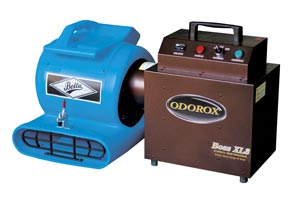
- Hydroxyls are made by air passing over a 3 optic ultra violet light. These molecules will attach to odor molecules and neutralize the odor. Hydroxyls will also sanitize the air. Cruise ships and hospitals use these all of the time. It is 99.9% effective in killing the H1N1 virus! Insurance companies love them because they are extremely effective in deodorization and are safe to be in the home while they are running. No hotel room may be required!
- Ozone
- Ozone is extremely effective in neutralizing odor. Ozone is actually O3, which is a chemically unstable molecule and wants to get back to O2. The extra molecule will bind with the odor particles and therefore neutralize the odor.
- PRO TIP Do NOT allow a contractor to use ozone to deodorize when people, pets or plants are in the home. They should not use it when there is furniture in the area because it will eat away at any foam cushioning. These machines are typically used in “Ozone Rooms” for specific applications.
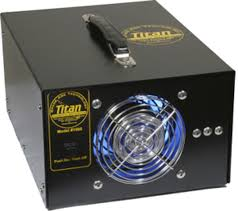
- PRO TIP Do NOT allow a contractor to use ozone to deodorize when people, pets or plants are in the home. They should not use it when there is furniture in the area because it will eat away at any foam cushioning. These machines are typically used in “Ozone Rooms” for specific applications.
- Ozone is extremely effective in neutralizing odor. Ozone is actually O3, which is a chemically unstable molecule and wants to get back to O2. The extra molecule will bind with the odor particles and therefore neutralize the odor.
- Deodorizing Crystals
- Odor absorbing crystals attract odors within a room and usually also have a fragrance smell to give you a perceived sense of a deodorized room. These are usually used with one or more other techniques.
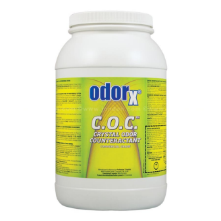
- Odor absorbing crystals attract odors within a room and usually also have a fragrance smell to give you a perceived sense of a deodorized room. These are usually used with one or more other techniques.
No Smell Guarantee
We stand behind the quality of our sewage, fire, or smoke damage clean-up with our "No Smell Odor Guarantee". This is our promise to you that you will not live with the unpleasant, and often intolerable, odor left behind after experiencing a sewage loss in your home.
What do I do with my ruined contents if putting in an insurance claim?
If you have sewage damage, or any other loss to your home or business that creates a loss of contents, it is essential that you follow these steps to help to properly document these losses for insurance purposes as well as content restoration purposes.
PRO TIP: If any of your appliances were directly affected by water, sewage or soot they should be checked by a licensed professional that can determine if it will need to be replaced. Ask them to write that on your invoice and submit it to your adjuster. Include the estimated cost to replace on the form below.
Most warranties are void if directly affected by water. Even if they are still working you should ask your adjuster to put that in for claim since it voided the warranty. Very often we see homes with a few inches of water where the water heater was affected. Most likely your warranty is now void.
Common items that may be ruined if in direct contact with sewage:
- Clothing
- Furniture
- Electronics
- Laptops, computers, televisions, vacuums, …
- Utilities
- Furnace, water heater, washer, dryer, …
Inventory Loss Sheet Instructions
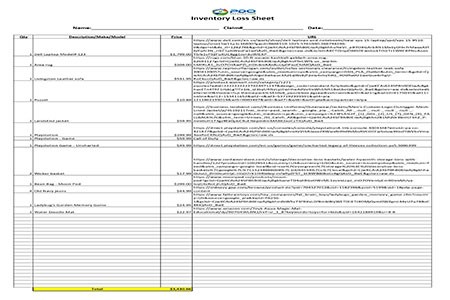
- Download the spreadsheet.
- Enter in your name, address, date, and claim number.
- Create a folder on your phone for your photos.
- Take detailed pictures of each item that was ruined due to this loss. Try to get the make, model, and serial number.
- Go to your computer and search for each item.
- Type in the quantity, a brief description, price and copy the url link where you found the item.
- If you need more columns, right click in the cell on the far left and click insert to add more columns.
- Do NOT discard any of these items until your adjuster says you can in case they want to evaluate themselves.
- Get it in writing/email that you can discard the photos before you eliminate them.
- Save as a .pdf file and email to your adjuster when complete.
What causes a sewer back up?
The 4 most common reasons:
- Soft Clog
A soft clog is when an item went down your drain lines and got stuck, which will back up your drains back into your property. This is good news potentially if you are deciding to put in a claim, if the clog was within your building.
- Tree Root: Roots can break your sewer line or more commonly find their way into your drain lines.
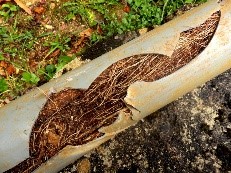
- Damaged Sewer Lines
When there is more water draining then your cities sewer can handle, they will sometimes back up into your home.
Older drain lines that are made from clay will collapse over time. Happens very often when a contractor drives a piece of heavy equipment over your lawn.
- Flooding
When there is more water draining then your city’s sewer can handle, they will sometimes back up into your home.
What are potential signs of a sewer back up in your basement?
Wastewater will back up into your basement first because it has the lowest drains in your house. But if you know what to look for, you will be able to spot an impending sewer backup problem before it becomes a major catastrophe.
- Foul smells coming from your drains. Your drains and pipes are designed to carry wastewater and smells away from your home, this is a certain telltale sign.
- Pro Tip: If you have a floor drain and it does not have any water in it you may smell an odor. Put some water into the drain to fill the p-trap and this will block the odor from backing up.
- Bubbling toilets or drains. This is a major red flag that wastewater is not flowing through your pipes as efficiently as it should. This is indicating the drains are not functioning correctly and you should a drain cleaning company ASAP.
- Multiple slow or clogged drains or toilets. When you are seeing slow draining or blockage issues throughout your house, that is an indication that your main sewer lines are backing up.
- Strange fixture issues. If you use the washing machine and your toilet bubbles, or you flush the toilet and water backs up into your shower, those are primary symptoms of a sewer blockage.
Sewer Back Up Prevention Tips
The best way of dealing with backed up sewage in your basement is to prevent it from ever happening.
- Maintain your sewer lines in your yard. Most homeowners don’t realize it’s their responsibility to maintain the pipeline between the house and the city’s sewer main. A pipe that’s cracked, deteriorated, or filled with tree roots will allow groundwater to seep in.
- Dispose of grease properly. Don’t pour liquid cooking grease, fats, and oils down drains, which cannot easily be broken down in the wastewater treatment process as well as can solidify in cold weather.
- Dispose of paper products properly. Never flush anything down the toilet with the exception of bodily waste and toilet paper. That includes:
- Feminine products
- Paper towels
- Diapers
- Cloth rags
- Hazardous household chemicals
- Consider plastic piping. Tree roots can’t break through plastic piping, and therefore create a more secure line.
- Clean drains regularly. Flushing one cup of baking soda followed by one cup of white vinegar and warm water instead of crystal or chemical drain cleaners.
- Correct illegal plumbing connections. Depending on where you live, it may be illegal to connect French drains, sump pumps and other flood control systems to your sewer.
- Consider a backwater prevention valve. Installed onto the sewer line in your basement, a backwater valve allows sewage to go out but not back in. When installed and maintained correctly, it can serve as a final line of defense in sewer backup prevention.
- Pro Tip: Check your insurance policy and make sure you have a back up rider of at least $10k or more. You will be surprised how much it costs for the mitigation, rebuild and your lost contents
If you just had your sewer backup into your basement in north New Jersey, give us a call for an estimate, we are available 24/7.
Glossary
Antimicrobial - is an agent that kills microorganisms or inhibits their growth. Antimicrobial agents can be grouped according to the microorganisms they act primarily against.
Containment - containment barriers are used to contain containments from reaching other areas of a home.
Deductible - a specified amount of money that the insured must pay before an insurance company will pay a claim. The amount is determined by your policy.
Deodorize - to rid of odor, especially of unpleasant odor.
HEPA - stands for high-efficiency particulate air. A HEPA filter is a type of mechanical air filter; it works by forcing air through a fine mesh that traps harmful particles such smoke.
Hydroxyl - The hydroxyl radical, •OH, is the neutral form of the hydroxide ion (OH–). Hydroxyl radicals are diatomic molecules that are highly reactive and very short-lived with an average half-life of less than two seconds.
IAQ – Stands for Indoor Air Quality
IICRC - Stands for Institute of Inspection Cleaning and Restoration Certification
Insurance adjuster – a person employed by insurer or insured to determine the loss under an insurance policy.
Insurance field agent – an agent who sells insurance
Malodor - an unpleasant or offensive odor; stench, smell
Masking Agent - provide a pleasant fragrance that mutes the malodor to make it more tolerable.
Negative air - a ventilation system whereby air is drawn out of a contaminated room and therefore does not affect other rooms in the structure.
Non-Professional – not a member of or trained in a specific profession.
Odor - the property of a substance that activates the sense of smell.
Ozone - Ozone (O3) is a highly reactive molecule and is very quick to chemically react with particles that it comes into contact within the air and on surfaces. The extra oxygen atom in the ozone attaches itself to other molecules, chemically changing their structure to create non-offensive molecules – eliminating the smell
Pairing Agent - eliminates smells by bonding to the odor molecule and thereby altering the shape of the odorous molecule so the olfactory senses no longer recognize the odor.
PPE - stands for Personal Protective Equipment.
Sanitize - to clean and make hygienic.
Sewage - waste water that flows down drains and through pipes from toilets and sinks
Conclusion
In my experience, a persistent and professional approach will bring you the results you wish for when it comes to insurance claims. Don’t be intimidated, be patient and use the power of the written word. This may seem like a long process – but now that you are (likely) more informed than the underwriters and adjusters working for your insurance company – you have the upper hand. The protection of your family and property are worth the effort!

